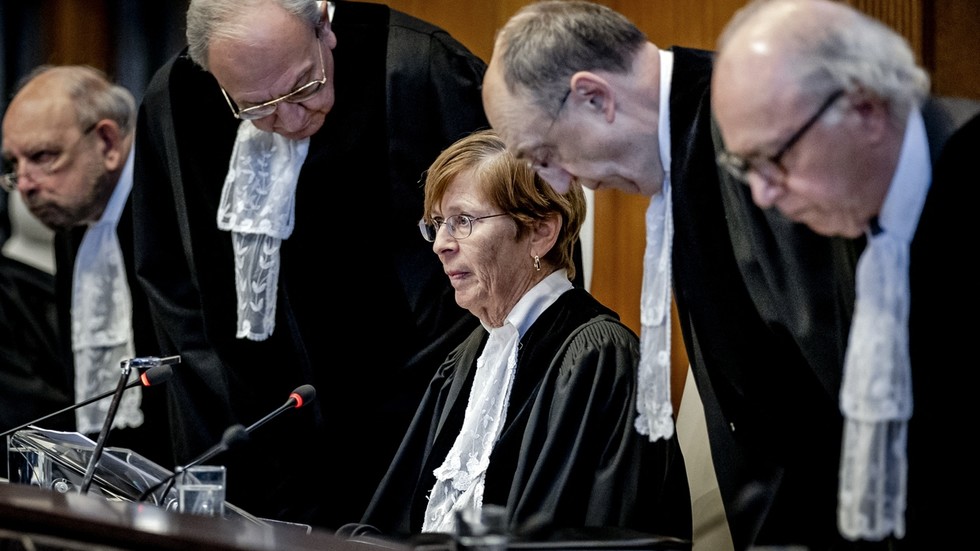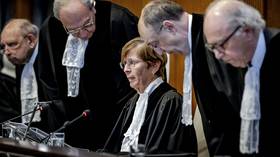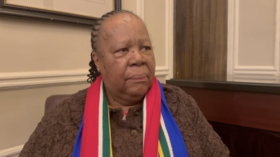
The ICJ also demanded that humanitarian assistance be allowed into Gaza

ICJ President Joan Donoghue (C) and ICJ judges arrive at the International Court of Justice (ICJ) prior to the verdict announcement in the genocide case against Israel, brought by South Africa, in The Hague on January 26, 2024. © Remko de Waal / ANP / AFP
The International Court of Justice (ICJ) issued its first ruling on South Africa’s case against Israel on Friday, ordering the Jewish state to take all necessary actions to prevent genocide in Gaza. The court did not, however, order Israel to cease its military operation against Hamas.
A panel of 17 judges agreed that the court, based in The Hague, has jurisdiction to hear South Africa’s case, and passed seven “emergency measures” requested by Pretoria. In addition to demanding that Israel refrain from committing genocide, the judges ordered the Jewish state to punish members of its military who commit genocidal acts, as well as officials who publicly call for the genocide of the Palestinians. Israel must also preserve evidence of any genocidal acts already committed, the ruling stated.
The judges also ruled that Israel “shall take immediate and effective measures to address adverse conditions to life in the Gaza Strip.” West Jerusalem was further ordered to report back to the court in a month with an update on what it is doing to comply with these measures.

Read more
The ruling falls short of South Africa’s full list of demands, which included a measure ordering Israel to “immediately suspend its military operations in and against Gaza.”
However, it also comes as a blow to Israel, which demanded that the court throw out the entire case, describing it as “spurious and specious.”
While the ICJ’s rulings are final and legally binding, the court lacks any method of enforcing them. Nevertheless, the Palestinian Foreign Ministry hailed Friday’s verdict as an “important reminder” that no state is above the law.
South African Foreign Minister Naledi Pandor said on Friday that her country’s aim was “to highlight the plight of the innocent in Palestine” and “draw attention to the lack of justice and freedom.” Regardless of how the case plays out, Pandor told Ubuntu Radio that Pretoria has already achieved these goals.
South Africa lodged its case in late December, arguing that Israel was breaching the UN Genocide Convention by “killing Palestinians in Gaza, causing them serious bodily and mental harm, and inflicting on them conditions of life calculated to bring about their physical destruction.”
Hamas fighters attacked Israel on October 7, killing around 1,200 people and taking nearly 250 to Gaza as hostages. Israel responded by declaring war on the Palestinian militant group and placing Gaza under a near-total siege. After three weeks of aerial bombardment, Israeli ground forces entered the enclave in late October, where they remain engaged in combat with Hamas.
The Israeli operation has killed more than 26,000 Palestinians, roughly two-thirds of whom were women and children, according to the latest figures from the Gaza Health Ministry. Around 60% of the enclave’s infrastructure has been destroyed and a quarter of its population are starving and unable to access drinking water, according to a UN report published earlier this month.




